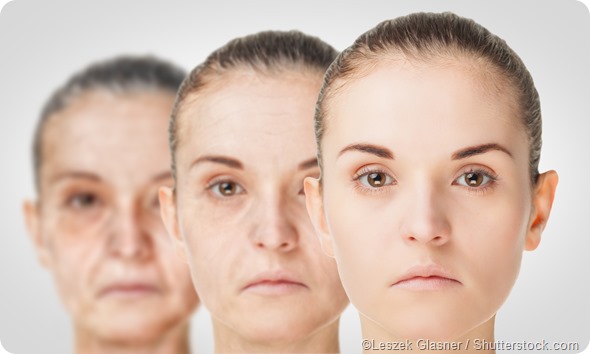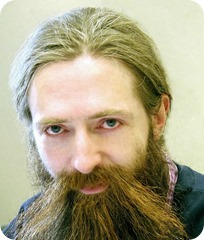It’s certain. It’s only a matter of time.
Basically because the human body is extremely complex and does itself a lot of different types of damage in the course of keeping us alive. But the complexity is not out of sight - it’s manageable. That’s why we can be optimistic.

What does aging actually involve and how well do we understand the process?
It involves the creation of various types of molecular and cellular damage that are intrinsic side-effects of processes that comprise the body’s normal operation, like breathing.
What makes something qualify as damage is if it is an accumulating change to the body’s structure that eventually causes problems to some aspect of how the body works. For example, certain waste products accumulate and eventually get in the way.
How to end aging: Aubrey de Grey at TEDxOxbridge
Can you please outline previous studies that looked at simulating famine in order to try to prolong life? What were the outcomes?
Nearly all the successful life-extension studies in the laboratory have been of this kind. Either they just impose famine in a controlled way (by feeding animals less than they’d like), or they genetically or pharmacologically impede the utilisation of calories.
The outcomes, in very brief summary, are that it is possible to get really short-lived animals (lifespans of a few weeks) to live a few months, i.e. several times longer than normal, but when the normal lifespan is a couple of years (as with mice) the extension is less than 50%, and with monkeys it’s only a few percent.
Why do longer-living species have a weaker response to famine?
Basically that’s just because long famines are rarer in the wild than short ones, so there is less selective pressure to evolve the genetic machinery to adapt one’s metabolism to respond to long famines.
What other avenues have researchers investigated when trying to reverse or prevent the process of aging?
People have tried various ways to manipulate our metabolism to make it “cleaner”, but nothing has reproducibly worked. Antioxidants are the main example.
Only in the past few years, though, people have been finally getting the message that damage repair is the way to go. The most celebrated successes so far have revolved around the elimination of “death-resistant cells”, specifically a category called senescent cells.
What does your current research focus on?
We cover a lot of bases. We have a couple of projects in our own lab and a few that we fund at university labs. These projects address each of the types of damage that contribute to the ill-health of old age, except that we tend to deprioritise ones that are being pursued very strongly by others, such as stem cell therapies.
Many people worry about the negative consequences or longevity such as overpopulation and so forth. How do you respond to these comments?
These concerns are not just misplaced (in the sense that the claimed consequences are actually going to be easy to avoid) but also totally illogical, being based on the indefensible assumption that there is something ethically different about “aging itself” versus the diseases of old age.
The reason we want to develop treatments to prevent Alzheimer’s is because it causes suffering. So does “aging itself”, whatever one may choose to mean by that term. End of story.
In your recent talk at the GIANT Health Event you described geriatric medicine as misguided. Please can you expand upon this and explain what you think needs to change?
Geriatric medicine is predicated on the idea that the diseases of old age can be cured, like infections. This is misguided because, unlike infections, the diseases of old age are side-effects of being alive in the first place. Hence they cannot be eliminated from the body - and moreover, any attempt to attack those symptoms directly will always become progressively less effective as the patient gets older, because the cause of the symptoms, i.e. the lifelong accumulating damage of aging, is still accumulating.
What are the main barriers research on reversing aging?
Funding, funding and funding. I believe we could be going literally three times faster and defeat aging a decade sooner if we had just one digit added to our pathetic $4M/year budget - that would equate to the saving of maybe half a billion lives.
Would you want to live forever?
I never think about how long I want to live. I think it’s a rather odd thing to have an opinion about - rather like having an opinion about when you want to go to the toilet next Tuesday.
We don’t have opinions about that, for the very good reason that we will have more information on the topic nearer the time. It’s just the same with longevity.
Where can readers find more information?
http://www.sens.org/
About Dr Aubrey de Grey
 Dr. Aubrey de Grey is a biomedical gerontologist based Mountain View, California, USA, and is the Chief Science Officer of SENS Research Foundation, a California-based 501(c)(3) biomedical research charity that performs and funds laboratory research dedicated to combating the aging process.
Dr. Aubrey de Grey is a biomedical gerontologist based Mountain View, California, USA, and is the Chief Science Officer of SENS Research Foundation, a California-based 501(c)(3) biomedical research charity that performs and funds laboratory research dedicated to combating the aging process.
He is also Editor-in-Chief of Rejuvenation Research, the world’s highest-impact peer-reviewed journal focused on intervention in aging. He received his BA in computer science and Ph.D. in biology from the University of Cambridge.
His research interests encompass the characterisation of all the accumulating and eventually pathogenic molecular and cellular side-effects of metabolism (“damage”) that constitute mammalian aging and the design of interventions to repair and/or obviate that damage.
Dr. de Grey is a Fellow of both the Gerontological Society of America and the American Aging Association, and sits on the editorial and scientific advisory boards of numerous journals and organisations.
He is a highly sought-after speaker who gives 40-50 invited talks per year at scientific conferences, universities, companies in areas ranging from pharma to life insurance, and to the public.